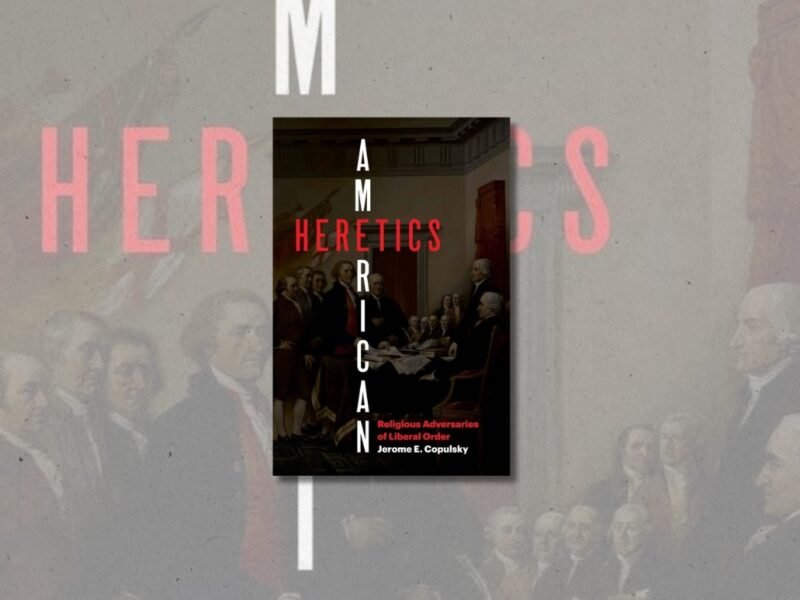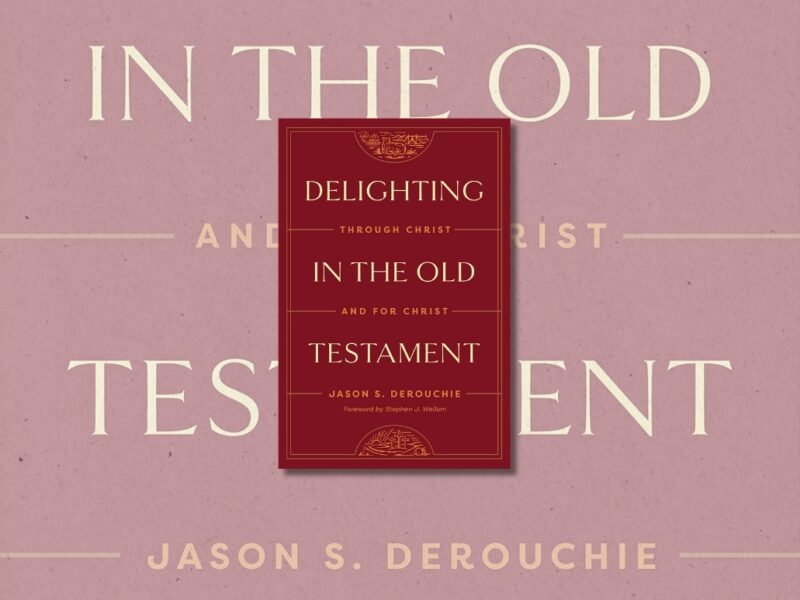The Doctrine of God: A Defense of Classical Christian Theism. By Jordan Cooper. Weidner Institute, 2023. 236 pp. $32 (hardcover), $24 (paper).
Attempting to write an entire systematic theology series grounded in the Protestant scholastic tradition is an ambitious undertaking, but Jordan Cooper is already a third of the way through accomplishing it. The first release, Prolegomena, was published in 2020. A year later, Union with Christ arrived, the second release, but numbered sixth out of nine planned volumes. Now comes the third release and the second numbered volume, The Doctrine of God: A Defense of Classical Christian Theism.
Building on the theological and philosophical foundations established in Prolegomena, The Doctrine of God articulates an understanding of God’s nature and attributes that accords with medieval and post-Reformation scholastic accounts of God. As Cooper’s object is to defend classical Christian theism in particular, he does not discuss every divine characteristic that has typically been attributed to God in the Christian tradition (e.g., omnipotence, omniscience, goodness, etc.). Rather, he focuses on simplicity, immutability, atemporality, and impassibility, discussing with regard to each of these its biblical justification, older formulations from medieval and Protestant scholastic authors, and contemporary challenges.
Based solely on the above description, readers might (and not without justification) feel like they’ve seen this book before. The Protestant retrieval of the classical doctrine of God has been ongoing for at least eight to ten years now, meaning that new books of this kind increasingly struggle to stand out compared to those that came before. This is not an issue for Cooper, however—whereas other books have taken up the doctrine of God from a broadly Protestant perspective, Cooper sets himself apart by presenting his doctrine of God within the context of the Lutheran tradition in particular, as befits his own commitment to Lutheranism. At the same time, he is careful to point out that “the conclusions reached here are simply those of the catholic tradition, which was appropriated by both branches of the Reformation” (6). The result is a book that is useful to the wider Protestant tradition, even as Cooper’s “Lutheran emphases…come out throughout the discussion” (6n8). Prominent Lutheran interlocutors include Robert Jenson, Carl Braaten, and Wolfhart Pannenberg, though Cooper also interacts with thinkers outside Lutheranism, such as Jürgen Moltmann, William Lane Craig, J. P. Moreland, and John Frame.
Cooper’s critical engagement with these and other figures is a gift to readers because, far too often, unaware students of theology rely on the verdicts and pronouncements of mainstream academic theologians in order to determine whom they should read, digest, and accept as sound teachers. A casual learner, for example, might assume Jenson’s Systematic Theology is trustworthy because Jenson is said to be a learned scholar. However, close scrutiny of the sort provided by Cooper shows that Jenson and other similarly reputable figures profess a doctrine of God that will sound strange to many. Whereas God is often referred to as a person (or three persons, to be somewhat more precise), Jenson writes that “the one God is an event; history occurs not only in him but as his being” (18). In like manner, Braaten contends that the Trinity is “the identity of God’s future under the different modes of his appearance to the world” (25). This is the kind of theology that could only be devised by those with a doctoral or seminary degree—in virtue of which many will automatically give such figures credence, as mentioned above—so Cooper performs a valuable service in responding to them with cogent criticism.
In addition to the negative task of combating error, Cooper does an excellent job of laying out the classical doctrine of God as encapsulated in the four divine attributes of simplicity, immutability, atemporality, and impassibility. Popular perception of these attributes as characterizing an unlovable abstraction totally foreign to the God of the Bible is pervasive, as Cooper is well aware. He therefore takes care to show that these attributes, far from diminishing or constraining God, are precisely what make him worthy of being called God and worshiped, as well as capable of loving and saving us. For instance, people are typically repelled by the idea that God is “without passions,” supposing this to mean he is unfeeling and does not really love us. In reality, as Cooper explains via Aquinas, if God were subject to passions as we are—experiencing emotions such as fear, sadness, or even hope—this would imply something lacking in God, or a vulnerability to evil, whereas in truth God is “eternal blessedness” (158). The fact of God’s impassibility is what enables him truly to love us, and, moreover, it does not conflict with the truth that Christ suffered for us in his human nature (159‒63). This is but one illustration of how Cooper exposits the doctrine of God in a way that is both historically informed and mindful of contemporary concerns.
In sum, The Doctrine of God is a worthy addition to Cooper’s systematic theology series, its quality in keeping with the previous volumes that have been released thus far. As Cooper observes, this particular volume articulates a historic catholic consensus on the topics explored therein, making it a helpful resource to Christians more broadly, not just Lutherans or even Protestants in general. The previous two entries set high expectations for future installments, and The Doctrine of God doesn’t disappoint, leaving us all the more eager for what comes next.







'Book Review: “The Doctrine of God”' has 1 comment
May 1, 2024 @ 12:19 pm Isaac Rehberg
For even greater context, here is the review of Cooper’s “Prolegomena” by our general editor, Jesse Nigro https://northamanglican.com/review-prolegomena-a-defense-of-the-scholastic-method-by-jordan-cooper/
And here is my own review of Cooper’s “Union with Christ.” https://northamanglican.com/not-just-for-lutherans-a-review-of-jordan-coopers-union-with-christ/